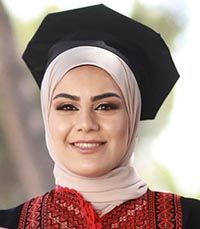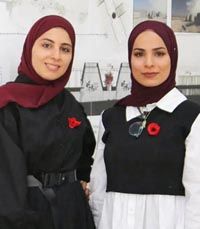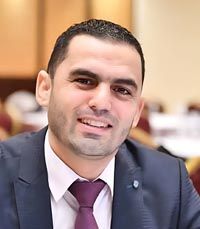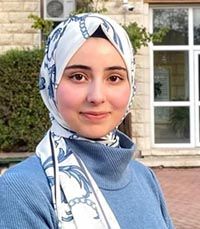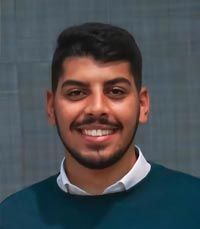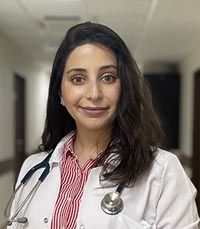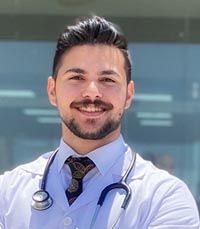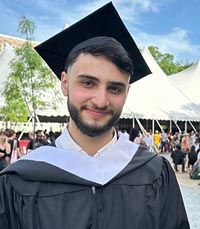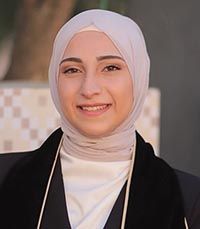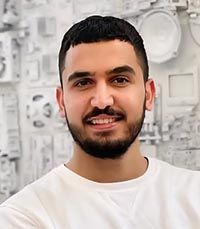We are pleased that you chose Al-Quds University (AQU) as the destination of your study in the Middle East. You chose well since AQU is unique in different respects and offers a broad range of courses in different fields of academia and personal experiences in a historically, culturally and politically fascinating environment.
International Students Welcome
Accommodation
Regarding the accommodation search, we encourage all incoming students to take part in our guest house which faraway around 800-850 meters (15 minutes walking) from Al-Quds University, main campus. The cost per student is 250$/month and this cost includes electricity, hot water and free access to the internet. Due a limitation on number of available rooms, please confirm if you would like to stay at AQU guest house to help you in booking your room
ECTS at Al-Quds University
ECTS is a tool that helps to design, describe, and deliver programs and award higher education qualifications. This will be applied to all types of programs, whatever their mode of delivery (school-based, work-based), the learners’ status (full-time, part-time) and to all kinds of learning (formal, non-formal and informal).
ECTS credits are based on the time students need to complete all learning activities (such as lectures, seminars, projects, practical work, self-study and examinations) required to achieve the expected learning outcomes.
ECTS is a tool that helps to design, describe, and deliver programs and award higher education qualifications. This will be applied to all types of programs, whatever their mode of delivery (school-based, work-based), the learners’ status (full-time, part-time) and to all kinds of learning (formal, non-formal and informal).
ECTS credits are based on the time students need to complete all learning activities (such as lectures, seminars, projects, practical work, self-study and examinations) required to achieve the expected learning outcomes.
60 ECTS credits are attached to the workload of a fulltime year of formal learning (academic year) and the associated learning outcomes. In most cases, student workload ranges from 1,500 to 1,800 hours for an academic year, whereby one credit corresponds to 25 to 30 hours of work.
Credits are allocated to entire qualifications or study programs as well as to their educational components (such as modules, course units, dissertation work, work placements and laboratory work).
ECTS key feature that 60 credits are allocated to the workload of a full-time academic year, 30 ECTS credits are normally allocated to a semester and 20 ECTS credits to a trimester. Qualifications which have formal programs lasting three fulltime academic years are allocated 180 ECTS credits.
One approach to allocate credit:
- Teaching staff defines the learning outcomes of each program component, describe the learning activities and estimate the workload typically needed for a student to complete these activities. Proposals are collected, analyzed and synthesized and the estimated workload is expressed in credits.
- Higher education institution or the faculty may decide from the start to standardize the size of educational components, giving each one the same credit value.
Calculating Workload:
- Contact hours for the educational component (number of contact hours per week x number of weeks).
Time spent in individual or group work required to complete the educational component successfully (i.e. preparation beforehand and finalizing of notes after
- attendance at a lecture, seminar or laboratory work; collection and selection of relevant material; required revision, study of that material; writing of papers/projects/dissertation; practical work, e.g. in a laboratory)
- Time required to prepare for and undergo the assessment procedure (e.g. exams)
- Time required for obligatory placement(s)
- Entry level15 of students for whom the program (or its components) is designed; the approach to teaching and learning and the learning environment (e.g. seminars with small groups of students, or lectures with very large numbers of students) and type of facilities available (e.g. language laboratory, multi-media room).
- Work placements or internships are required to complete the program (or a component) they are part of students’ learning outcomes and workload and necessitate an allocation of credit In such case, the number of credits allocated to the work placement should be included within the overall number of credits for the particular academic year
ECTS Convertor to Credit Hours and Vice Versa
The major difference between the ECTS and the AQU Credit system is that the first is based on student load and the second on contact hours. (The ground rule for AQU credit system is that for every hour in class, students need to spend three outside of class.) While ECTS is more oriented towards the students (the time required for them to meet the intended outcomes), the AQU system is more oriented towards the faculty (the time a faculty member needs to teach).
Technically, the ECTS has no co-curricular or extra-curricular activities because every activity needed to meet the intended outcomes of the program is valued with a certain number of ECTS, therefore 1 ECTS Point = 0.5 Credit Hour.
| Item | ECTS | AQU Credit Hours |
| Academic Year | 60 | 30 |
| Academic Semester | 30 | 15 |
| Academic Trimester | 20 | 10 |
Mission
The mission of Academic International Relations Office is summarized in enhancing international relations, exchanging students and employees’ experiences, building capacities, and promoting cultural understanding.
Incoming Students Process
| AQU – Procedures for Incoming Students | ||
| Workflow | Responsibility | |
| Academic International Relations Office (AIRO) under the capacity of the Academic Affairs Office (AAO) | AAO | |
| Step 1 | IAO will communicate with applicants to: | AIRO |
| 1 | Request the following documents from foreign students: – Filled and signed AQU exchange application form – Filled and signed Proposed Study Program – Copy of graduation certificate or academic record (certified copies) – Letter of motivation – 1 Recommendation letter – CV – Proof of English proficiency, – Copy of valid passport. | AIRO |
| 2 | Provide following information & guidelines to the students: – Course offers avaiable at AQU corresponding with the applicant’s studies in English and/or in Arabic – Fees for studies – ECTS equations – Registration procedures – General information about visa formalities, – Information related to accommodation facilities, – Local customs and traditions, – Cultural events and sights – Travel opportunities | AIRO |
| Step 2 | Financial issues: Department of Finance will activate a student profile | AIRO & AAO with Financial Department |
| Step 3 | Accomodation: The AIRO will provide information in different housing opportunities and costs and the respective rules and conditions | AQU housing diretor through AIRO |
| Step 4 | Registration Upon the student’s arrival, AIRO staff in cooperation with AAO and the Department for Admission will give guidance for the: – Issueing of the student card – Activation of the student profile and the e-class access through the IT center | AIRO, AAO and Admission Department |
| Step 5 | AIRO in cooperate with Public Relations (PR) office will provide guidance issues related to university studies and daily life | AIRO & PR |
International Students' Experience
Scholarships & Exchange Programs!
Needy and exceptional undergraduate students & Exchange programme to support exceptional Palestinian students
Get in Touch with Us
We are happy to answer all your questions and inquires, please fill the below form and we will get in touch with you as soon as possible, or visit the international academic relations office on the Main Campus at Abu Dis
Working days : Saturday to Wednesday from 8:00 am to 3:00 pm
Weekend day: Thursdays & Fridays
International Academic Relations:
Faculty of Science – Third Floor
Main Campus, Al-Quds University
Abu Dis, Palestine
Phone: (+970) 2 2796111
Email: acad.cooperation@admin.alquds.edu


